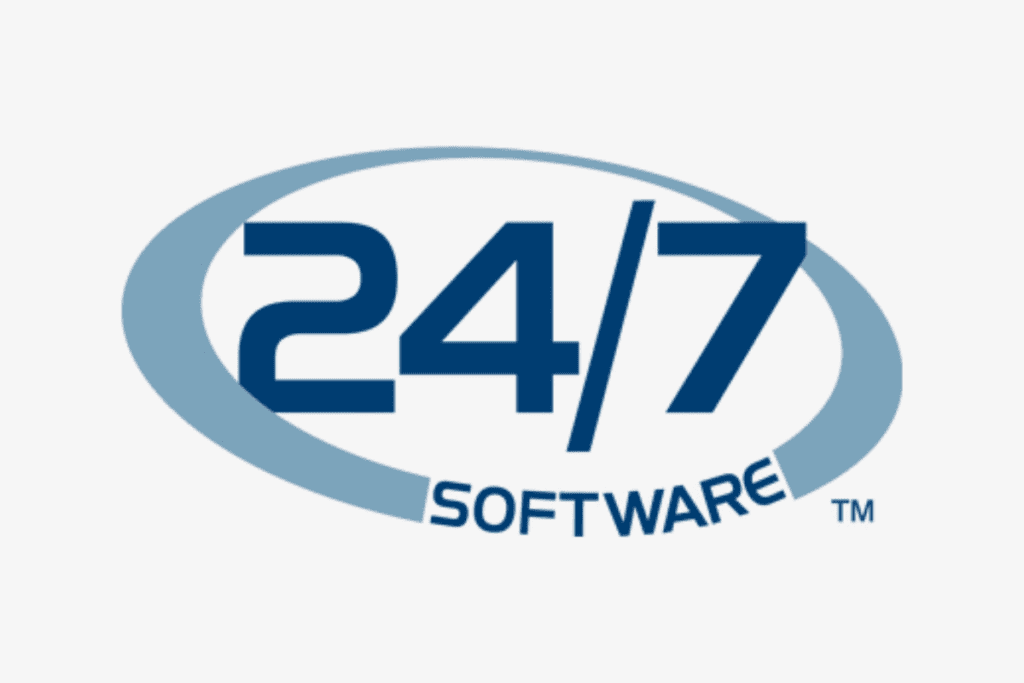Sunday 23 – Friday 28 August 2026
Upskill your team. Safeguard your venue.
The Institute of Venue Safety & Security (IVSS) is committed to strengthening the safety, security, and operational quality of the venue management sector.
IVSS delivers a forward-thinking, hands-on learning experience, equipping attendees with actionable skills, trusted resources, and practical guidance they can apply immediately.
Held in August of each year delivering 25 safety and security-specific subjects utilising case studies, classroom discussions, industry best-practice analyses, industry specialist panels, and small group discussions to ensure you master them all.
Each one-week residential includes daily Independent Discussion Groups (IDGs) where students dive deep into discussions on the subjects covered throughout the day. IDGs include venue site visits to ensure that the teachings are applied directly into the workplace.
Venue Application Projects where students are provided with resources to apply and implement the teachings back in the workplace. The resources are discussed in the IDGs to ensure application and implementation can commence immediately
A platform and community for our IVSS instructors and students to stay connected throughout the year and discuss issues and topics relevant to venue safety and security.
With the resources and tools needed to face the ever changing landscape of providing safe venues.
As a professional in the venue management industry, risk management, good governance, and legal compliance are embedded in many facets of what we do and conducting risk assessment is an important part of that that has been a legal requirement and good industry practice over many years.
Most operationally focussed venue planners know how to conduct risk assessment however sometimes what is set out in the risk plan, differs to what happens on the ground, or that the process of conducting the risk assessment is just ‘box ticking’ and disconnected from other facets of event planning. Have you ever considered:
It’s not just about creating a process … it’s about having all stakeholders embedded in the way they do business from a safety perspective; the behaviours they apply, and the attitudes, values and beliefs they commit to as a collective group.
The primary goal of this session is to reflect on and ensure you have knowledge in the process of undertaking risk management and have a risk aware culture to enable you to adapt to changes more efficiently and effectively.
The intent of Work Health and Safety legislation is to provide a balanced and nationally consistent framework for securing a healthy and safe workplace … to make the workplace safer for workers, contractors and the public. While the legislation differs in some states and territories, the intent of the legislation is to impose duties, and obligations on business operators, and entities conducting organised business activities. To maintain a safe workplace that is as reasonably practicable, free from risk of injury. There is a dual duty of care:
This session will introduce you to:
ISO 45001 Safety Management System is an international standard for health and safety at work developed by national and international standards committees, independent of government. Key elements include leadership commitment, worker participation, hazard identification and risk assessment, legal and regulatory compliance, emergency planning, incident investigation and continual improvement. ISO 45001 utilises the Plan-Do-Check-Act methodology to systematically manage physical and psychological health and safety risks.
This session will introduce you to a systematic approach to implementing safe practices and creating a safe work environment to help you meet your legal obligations.
The Building Code Compliance session is designed to provide you with a comprehensive understanding of building codes and regulations, enabling you to navigate the complexities of compliance in construction projects. This session will cover key aspects of building codes, including their purpose, application, and enforcement.
The session will be conducted in a venue where you will learn about various building and fire code requirements and gain practical knowledge of the life safety and building code compliance facets of your venue and of temporary overlay if installed
Our demand for online technology is changing the way we operate venues. Patrons, venue hirers, and staff increasingly rely on online goods and services, transact, communicate, advertise and to maximise the fan experience.
The more venues rely on technology, the more susceptible they are to cyber security threats. If online ticket sales are disrupted by cyber-attack, this has a commercial impact on the event. If an event’s sound or lighting system is interrupted, this impacts the patron experience. If a venue’s website is defaced, or social media properties are taken over, this could have a brand impact.
Despite a growing range of cyber security risks, not all venues consider cyber security as a critical part of their risk management focus. It is rarer still for a venue to have dedicated cyber security resources. In the past cyber security risks have not been the most fundamental risks to the business of venues and live events. Workplace safety, patron health and safety, physical security, and general business disruption risks have been traditional more likely in our industry until now.
So how much focus should we put on cyber security? What types of cyber security risk should we worry about, and invest time and resource mitigating; and what can we deprioritise?
This session will be conducted as a panel so you’ll have the chance to ask questions and discuss these critical questions.
This session will provide an introduction to the key elements of security operational planning and delivery.
The session will address key elements related to developing integrated operational security plans, planning different types of events with different risk profiles, the importance of defining security roles and responsibilities, and the need to balance security posture with customer experience requirements.
This session will explore the various frameworks and standards which can be used for emergency planning and response. It will provide students with an understanding of emergency management structures and their application into venues and events.
AS3745: Planning for Emergencies in Facilities provides guidance on the development of procedures for the controlled evacuation of buildings and workplaces during emergencies. This standard provides guidance for building evacuation procedures, assembly areas and warden systems.
The session will discuss the Standard which outlines the minimum requirements for the establishment, validation and implementation of an emergency plan for a facility to provide for the safety of occupants of that facility and its visitors lead up to and during an evacuation.
This crowd psychology and crowd science session provides an in-depth understanding of the dynamics and behaviour of crowds. Participants will explore the psychological, social, and behavioural aspects of crowds, including their formation, influence, and collective behaviour.
This session will delve into key theories, research findings, and case studies to help participants comprehend the complexities of crowd psychology and its applications in various domains. The outcome of understanding the science of crowd management is the ability to plan and deliver safe events with consideration given to densities, flow rates and communication.
Behavioural detection refers to a method of detecting individuals with hostile intentions by observing their behaviours and activities.
This session will cover specific advice for various stakeholders to:
When incorporated with other security measures, behavioural detection can be a powerful tool that can be implemented in a range of environments, as part of a systematic approach to disrupt criminals and terrorists carrying out activities that aim to cause harm to others.
Safety and security leaders actively promote an aware culture within their organization. They go beyond enforcing policies and procedures and create an environment where safety and security is a core value ingrained in the company’s attitudes, beliefs and behaviours that represent the collective culture of the organisation. Safety and security leaders lead others to establish systems and processes to continuously improve existing protocols, to minimize vulnerabilities and mitigate potential hazards and threats that can adversely affect people and property.
Health and Safety managers are responsible for ensuring the organisation complies with health and safety laws. They monitor workplace activities to ensure workers follow established protocols, investigate incidents or accidents, and document any violations of safety policy.
The IVSS Safety and Security Leadership Series covers a range of leadership skills including:
As an employer, it’s your responsibility to give your workers the information, training and supervision they need to stay safe at work.
This first session in the IVSS Safety and Security Leadership Series looks at your responsibilities in relation to providing, implementing, monitoring and managing training and induction in the workplace.
The second session in the IVSS Safety and Security Leadership Series looks at policies, procedures, documentation and reporting.
Understanding the significance of safety and security policies, procedures, documentation, and reporting is crucial. From a perspective of continuous improvement, adhering to a systemized process is important. Are we asking the right questions and refining our procedures consistently? Are we identifying the primary challenges in executing our risk management activities and measures? Is it rallying stakeholder support, ensuring comprehensive monitoring, optimizing communication pathways, or refining documentation and reporting systems?
This session will dive deep into and discuss these critical areas with the goal of addressing any procedural gaps promptly for sustained safety and security operational effectiveness.
However large or small a venue, however simple or complex the event, it is vital to allow sufficient time for planning to take place in advance, whether that planning be for strategic, tactical, or operational purposes.
Those responsible for safety management should be identifying the hazards, threats and risks associated with the venue and the event.
As the event approaches and the necessary measurements for remediation or mitigation are implemented, the planning process can turn towards more finite tactical and operational matters.
Planning for event safety management, therefore, requires an understanding of what tasks or procedures need to be considered:
throughout the duration of the planning cycle.
This session aims to give students the understanding of what needs to be considered when planning for an event and to ensure it is planned safely and meets all necessary legislative and regulatory requirements.
It will introduce students to important tools that can be used for guidance which are recognised internationally within the industry:
Developing an effective emergency response plan is key for safety managers who may be anticipating any form of severe storm, flood, extreme temperatures, or severe weather event.
Weather is unpredictable and with a changing climate, having a severe weather response plan, particularly for outdoor events, is important for the safety and security of employees and business infrastructure. Even if a business or venue is not in a region affected by severe weather, customers, partners, or suppliers may still be disrupted, so it is important to have a plan in place to anticipate those impacts.
This session will cover some of the key issues you must consider when preparing for severe weather including:
Every organisation has a reputation that is recognised by its customers and other stakeholders. It represents the values, personality, and behaviours that the organisation is perceived to represent in the marketplace within which it operates and beyond.
This reputation can however be damaged by actions or omissions by the organisation, its directors, employees, or other relevant internal or third-party stakeholders. Major incidents where the reputation of the organisation needs careful handling to minimise the damage, and maximise the recovery opportunities.
Crisis situations need careful management of communications to relevant stakeholders to protect the organisation’s reputational assets and its brand.
In some cases, the crisis can involve an adverse impact on critical business functions. These are functions that are core to the organisation’s ongoing operations, survival and success. While most business functions are important, not every business function is critical.
Business Continuity Management helps apply a risk-based approach to understanding business critical functions, assessing them according to risk; and planning to ensure there is a state of continuity readiness.
Ultimately, this session is about resilience. It will help you gain knowledge and skills in risk management methods to manage threats to an organisation’s reputation, respond to operational threats, and recover to a position that is similar or better than before.
Auditing serves as a crucial mechanism to assure and verify the implementation of systems, procedures, workplace practices, and documentation. It’s essential to confirm that the actions align with the stated plans or procedures. This requires ongoing monitoring, verification, and assurance. Picture yourself in a courtroom setting; having the intent alone is insufficient. You must be able to defend the implementation of documents, processes, and procedures within your workplace.
This session will also consider the monitoring and review aspect of auditing that serves to validate the effectiveness of risk controls in mitigating risks. Practically, this involves strategies such as conducting inspections and audits of risk controls, annually reviewing the risk and insurance program, reviewing contracts, conducting post-event debriefs to evaluate control effectiveness, conducting major event test events, and analysing incident reports.
Threat and vulnerability assessment are activities that feed into a security-based risk assessment. They can either be standalone activities or are used to help determine the level of risk that a threat represents. The vulnerability assessment considers the effectiveness of risk controls to identify the gaps or weaknesses that undermine a venue’s security. Threat assessments study the entities, tactics and techniques used to threaten an organisation. .
Understanding a venue’s vulnerabilities is key to preventing terrorism and improving overall event security.
Whether a large stadium, concert or festival location, or other sporting or performance venue, the venue first needs a comprehensive Risk and Vulnerability Assessment completed of the venue on both non-event and event days.
By taking the time to identify and understand where the highest levels of vulnerability exist, a detailed plan to mitigate the risks people, property or business disruption can be effectively tailored.
This session will guide you through the reasonable steps necessary to provide a secure event that protects patrons, players/performers, staff and the venue site which is essential in protecting your brand, deterring an attack, and minimizing potential liability.
Expanding the learning outcomes from Fundamentals of Venue Security in Year One, this session will consider detailed elements related to delivery of security operations.
This session will address key elements related defence in depth and the ‘last mile’, venue security arrangements, alcohol management, RSA and liquor planning, crowd management, security deployment planning and ratios, and managing contracted security services providers.
The landscape of safety and security has changed significantly in the past five years and the release of the Australian Government’s Strategy for Protecting Crowded Places from Terrorism provides learners the opportunity to integrate the learnings and guidance of the Crowded Places Strategy within their venues.
Counter Terrorism are the measures taken to combat or prevent terrorism … also known as anti-terrorism. The purpose of this session is to build your understanding of the practices, tactics, techniques, and strategies that governments, law enforcement, businesses, and intelligence agencies use to combat or eliminate terrorism.
Counter Terrorism strategies are based on strong, trusted partnerships between all levels of government and those responsible for crowded places. The strategies aim to make crowded places as resilient as possible to terrorist attacks while preserving our use and enjoyment of these places.
Crowded places such as stadiums, shopping centres, and major events will continue to be attractive targets for terrorists. Owners and operators of crowded places have the primary responsibility for protecting their sites, including a duty of care to take steps to protect people that work, use, or visit their site from a range of foreseeable threats, including terrorism.
The approach taken to protect crowded places should be nationally consistent, proportionate and, to every extent possible, preserve the public’s use and enjoyment of these places. It is not possible to protect everything, so owners and operators must prioritise the highest risk areas of a crowded places.
This Advanced Crowd Psychology session provides an in-depth understanding of the dynamics and behaviour of crowds building on and diving deeper on the Year 1 Crowd Management subject. Participants will explore the psychological, social, and behavioural aspects of crowds, including their formation, influence, and collective behaviour.
This course will delve into key theories, research findings, and case studies to help participants comprehend the complexities of crowd psychology and its applications in various domains.
Accessibility is about complying with anti-discrimination laws and social responsibility. The requirement for people with disabilities to have the same (or as close as is achievable) right to access as able bodied people. Accessible venues should consider;
This lesson covers the fundamentals of Event Control Room (ECR) operations in public venues across Australia and New Zealand. It highlights the principles of command and control, emphasizing clear authority structures, efficient workflows, and the integration of technology for real-time decision-making and incident response.
Participants will explore incident management and communication strategies to ensure timely and effective coordination within the ECR and with external stakeholders. Emphasis will be placed on maintaining clear, actionable communication during routine operations and emergencies.
The session will introduce disaster management frameworks such as AIIMS and CIMS, focusing on how an ECR transitions to support agency-led responses during major emergencies. This includes resource coordination, infrastructure support, aOnnd collaboration with emergency services to aid community resilience.
By the end, participants will gain a clear understanding of ECR operations, equipping them to manage public events and support broader disaster response efforts effectively. If you have experience in either of the above subjects, or other relevant areas of expertise this is an opportunity to join an elite group of industry professionals committed to advancing expertise and excellence in venue safety and security.
The third session in the IVSS Safety and Security Leadership Series looks at Venue Communication and Information Sharing.
Being an effective safety leader requires possessing the skills and knowledge to lead with integrity. Safety industry leadership demands a focus on technical proficiency and organisational insight. Offering clear direction and fostering collaboration among stakeholders are integral aspects of proficient leadership.
This panel session will explore the critical role of communication and information sharing in safety and security. It will cover topics such as stakeholder engagement, internal and external communication, and communication with consultants, contractors, and external agencies. Additionally, it will delve into strategies for utilising stakeholders and communication to facilitate cohesion during major events and involving them in planning processes.
The session will also address the important issue of determining what, when, and how to communicate information to the public.
The fourth session in the IVSS Safety and Security Leadership Series looks at Governance, Strategy, Budgeting, Change and Influence.
Safety leadership involves guiding others to embrace health and safety as a crucial work objective. By setting a positive example in the workplace, team leaders, managers, and executives can contribute significantly. They can help enhance workers’ safety awareness and motivation, promote adherence to safety protocols, and foster proactive safety practices.
This session will explore how governance, strategy, budgeting, change management, and influence contribute to achieving safety and security goals.
The fifth and final session in the IVSS Safety and Security Leadership Series looks at Building a Resilience Security Culture, Ethics and Professional Conduct.
A safety and security culture is the shared values, attitudes and behaviours that help organisations protect their assets, including people, resources, data and systems. It is a proactive approach that emphasizes the importance of safety and security as a business priority and involves everyone. Building a robust and positive safety and security culture is not a one-time project. Instead, it requires ongoing efforts to keep pace with new threats, technologies and regulations.
Establishing a strong security culture may appear daunting, but it’s a wise long-term investment. With the right commitment, resources and leadership, the benefits of a strong safety and security culture are worth it: a more secure and resilient organisation, better collaboration between teams and other departments, improved compliance, and increased customer trust.
This session will challenge you to think about what you can do to build a resilient security culture in your venue or business.

Health Safety and Security Manager at Te Pae Christchurch Convention Centre

Health Safety and Security Manager at Te Pae Christchurch Convention Centre
Greg is a dedicated professional currently employed in the role of Health, Safety and Security Manager at the prestigious Te Pae Christchurch Convention Centre. His commitment to ensuring the safety and security of both staff and patrons has earned him recognition within the industry.
Specializing in critical risk management, safety and security planning and team engagement Greg brings a wealth of knowledge and experience where he tirelessly works to identify and mitigate potential hazards to create a secure environment for all involved.
Greg’s 20 year management experience in workplace health, safety and security includes Te Pae Christchurch Convention Centre (ASM Global), Alliance Group Limited, News Corp Australia, Tabcorp, Toll Group and Sodexo Remote Sites Australia. In additional, Greg has been engaged to deliver security operations events for New Zealand and international dignitaries including the recent Crowded Places Conference in New Zealand.
Outside of his professional endeavours, Greg finds joy in two passions: football and Formula 1 racing. Whether on the pitch or following the adrenaline-fueled races of Formula 1, Greg’s enthusiasm for sports serves as a testament to his energetic and dynamic personality.
With a proven track record of excellence in his career and a genuine love for his hobbies, Greg embodies the balance of professionalism and passion in both his personal and professional life.

Senior Principal, Architect at Populous

Senior Principal, Architect at Populous
Al is a Senior Principal and registered architect with extensive knowledge in stadia, sports master planning, elite training facility, convention and exhibition design having worked both in Australia and internationally. Al is also an ex-professional sportsman who was the most capped prop in the history of Australian Rugby Union when he retired in 2011. His time as a professional sportsman, combined with his design expertise, makes him uniquely qualified to create venues loved by players and spectators alike. Al led the team on the design of Commbank Stadium, Australia’s newest rectangular stadium, as well as the design of the NSW Rugby League Centre of Excellence at Sydney Olympic Park. More recently, Al was the project lead for the Stadium Australia Redevelopment and led the Populous APAC COVID safe venue readiness planning helping sporting codes and venues with their plans to open safely to spectators. Prior to this, Al assisted Fiji Rugby Union in their bid for the HSBC World Sevens and Rugby Australia’s bid to host the 2021 Women’s Rugby World Cup.


Director of Security/Owner at Secure Events and Assets (SEAA)
Experienced security professional with over three decades of expertise in venue and event security, risk management, Emergency management, Counter Terrorism for crowded places and crowd management. Proven track record in leading security operations for major events, festivals, and critical infrastructure across Australia, New Zealand and Asia. Skilled in stakeholder engagement, operational planning, and policy implementation with a focus on maintaining high security standards and ensuring public safety.
Jim started his professional life with the metropolitan police London in the Public Order units before moving into the live Entertainment industry and emigrating out to Australia.
Jim has maintained his professional development completing the inaugural Institute of Venue Safety and Security (Venue Managers Association).
Additional holds university level qualifications in Crowd Management, Organisational Resilience, Counter Terrorism Risk Management and Tertiary level in Emergency Management, Public Safety and Risk management.
Jim is an accredited Venue Manger with the Venue Mangers Association and was awarded Allied professional in 2018, Jim is a Freeman of London and has received recognition for duties with the Police.
Jims experiences span across all fields of the industry having completed roles at a venue level in the following: Cricket World Cup 2019: Venue Security Manager, Ageas Bowl Hampshire, Sydney Showgrounds (Royal Easter Show): Safety and Risk Manager, 2014 – 2015,Glasgow Commonwealth Games 2014: Spectator Safety Manager, London 2012 Olympics: Venue Security Manager, Aquatic Centre, APEC Taskforce 2007: Venue Security Coordinator, Glastonbury Festivals Ltd: Security and Crowd Management, 2014-2108
Jim is actively involved in the Crowd Management Planning for the New Year’s Eve Fireworks across Sydney as well as the provision of consultancy for the touring sector of the industry across the region.
Jim continues to assist I the deployment of the industry with his engagement with several industry working parties for standards and guidance.


Head of Events & Venue Operations at Sydney Showground, Sydney Olympic Park
Mel Goodman is the Head of Events & Venue Operations at Sydney Showground. A world-class venue, Sydney Showground delivers over 100 national and international events each year, including music festivals, sporting events, exhibitions and tradeshows. Sydney Showground has partnerships with the Australian Football League and Cricket NSW, Greater Western Sydney GIANTS and Sydney Thunder utilising ENGIE Stadium for their home-ground matches. Every year, Sydney Showground hosts the iconic Sydney Royal Easter Show. Australia’s largest annual ticketed event, the show attracts circa 900,000 people.
Mel has worked in the events industry for over 15 years and since 2021 has been the Head of Events & Venue Operations for Sydney Showground. Mel’s event delivery is extensive, having overseen all facets of event and venue operations for recent major events such as Laneway Festival, ICC T20 Women’s World Cup and Knockout Outdoor as well as a raft of concerts, dance parties, exhibitions and conferences. Mel also headed Venue Operations for the FIFA Women’s World Cup 2023 International Broadcast Centre.
Mel has extensive qualifications in Event Management, Crowd Safety, Risk Analysis and Leadership that she combines with 15 years hand-on experience running some of the biggest events in Australia.

Principal, Reliance Risk, and Consultant to Momentus Technologies

Principal, Reliance Risk, and Consultant to Momentus Technologies
Wayne Middleton CVE is the Global Vice President of Risk Manager software for Momentus Technologies, (formerly Ungerboeck). He is the founder of the software which was acquired by Ungerboeck in 2022. He is responsible for supporting Momentus’ clients globally to maximise product value and help mitigate risk.
Wayne was, until recently, the owner of Reliance Risk consulting in Australia and New Zealand. He held roles as Principal and Managing Director in Australia for over 15 years. Reliance helps public venues, events, sports and companies in the entertainment industry to manage safety, security, enterprise, emergency and disruption-based risk.
Wayne has over 35 years’ experience in management and operational roles in the venues and events industries and over 25 years as a risk management professional. He is a VMS graduate (1996), was the past Chair of the VMS (2018-21), holds a Masters in Risk Management, a Bachelor of Business Administration, and a Diploma in Security Risk Management. He also holds a CVE designation awarded by the IAVM, is an instructors on the IAVM’s Academy of Venue Safety and Security (AVSS) in the US, and is the inaugural Chair of the VMA’s Institute of Venue Safety and Security.


Head of Visitor Services at Sydney Opera House
Jenny holds more than 35 years’ experience within the security industry, with 15 of those years in senior executive positions in Security, Organisational Change, Emergency management and Business Resilience. In more recent years her role has focused on Safety, Risk and customer excellence at Sydney Opera House where she holds the role of Head of Visitor Services and is responsible for the largest customer facing teams within the Opera House. She has implemented large scale organisational training programs for cultural change in customer excellence, diversity, inclusion and belonging.
Jenny also held the Role of Head of Security for Sydney Opera House from 2010 to 2016 and has worked internationally across the highly regulated environment in aviation and law enforcement industries, and has engaged over a long period with the counter-terrorism community and with Federal and State Governments. Jenny was a detective within the NSW Police and held this position for 13 years.

Managing Director of Veracity Business Solutions

Managing Director of Veracity Business Solutions
Veracity Business Solutions is an IT services provider and a seasoned non‑executive director, working at the intersection of technology and data governance.
With over 30 years in global, national and local technology consulting and leadership roles, he specialises in data governance frameworks which spans cybersecurity, data privacy and Gen AI regulation.
A frequent speaker at Australian Institute of Company Directors (AICD) and industry events, Bill helps directors, executives and teams implement pragmatic cyber and privacy approaches to strengthen incident response readiness.
He is the Chair of Relationships Australia Queensland, is a member of the Relationship Australia National Council, sits on the board of Gymnastics Australia, is on the Divisional Council of the AICD and as a member of the Tech Council of Australia, participates on Gen AI, cybersecurity and data privacy round tables.


General Manager, Events & Venue Management at Optus Stadium – VenuesLive
An enthusiastic and committed event and venue professional with over twenty years experience in the industry. A reputation for the delivery of high quality event planning and the execution of large scale sporting and music events in places of mass gatherings.
An extensive knowledge of event delivery, sport operations, venue management, command and control, emergency management and security operations.
Strong focus on the development and maintenance of stakeholder relationships with all operational partners. A leader who is passionate about people and the development of individuals and the team, helping others achieve their goals.
I have been part of VenuesLive for nineteen years now starting my time with VenuesLive NSW at ANZ Stadium (Stadium Australia) in Sydney and moving to VenuesLive WA at Optus Stadium in Perth. It has been a privilege to work with this company both behind the scenes and stand on the sidelines of some of the greatest major events in our country’s history.
Most recently Optus Stadium has captured the minds of the Perth community who have attended in large numbers and been treated to a magnitude of events from AFL, International Cricket & BBL, NRL including State of Origin, Bledisloe Cup, Football (soccer) and Concerts. In addition, there has been a number of Events held in the Stadium Park including Paul Kelly, Christmas Markets, Fun Runs, Charity Events and Go Karts.
Over this time, as a new business, we have been fortunate to have an engaged and committed team who have worked tirelessly to ensure the planning and execution of the Stadium opening and Events is of the highest standard.
In addition I’ve been a member of the National Stadium Safety and Security Forum since 2019, holding the Chairperson role from 2023 – 2025.


Associate Security Consultant at Arup
Michael is a safety, security and risk management professional with over 20 years’ experience in major event safety and security and critical infrastructure resilience.
He leads Arup’s major events and venues and critical infrastructure offering for the Resilience, Security and Risk team for Australasia and provides clients with support in the areas of safety and security design, strategy development and implementation, operations, resilience planning and delivery and security capability development and training.


Managing Director at Praesidium Risk and Resilience
Scott Taylor CPP, JP is a Combined Communications Expert and Security, Safety and Risk Specialist with over 29 years of global industry experience. He is an International thought leader who is board-certified in Security Management and he has shared his expertise globally through specialist consulting, contextualised training and various active operations. He has trained with the leading global authorities on behavioural awareness and base profiling and intertwines this skillset with his Security and Risk background.


Head of Security, Health and Safety at Roskilde Festival
Morten Therkildsen is the Head of Security, Health and Safety at Roskilde Festival. Northern Europe´s largest festival with 145.000 participants every day for 8 days, and with 80.000 people sleeping on campsite.
In 2012 Morten graduated with a Bachelor in Crowd safety Management from UK, and this year he is graduating a Master degree in Crowded Places and Public Safety Management.
Roskilde festival Group is a charity organisation focusing on cultural and humanitarian work for young people. The Festival has existed since 1972 and has donated more than 100.000.000 AUD to the cause.
During the year the Roskilde Festival Group is providing services to other promotors and through here, Morten is working as a consultant for clients such as Danish National Television, UEFA, Live Nation and many other clients. He also teach at the catastrophe and crisis management academy in Denmark.

Group Director, Facilities Services – ASM Global (APAC & Middle East)

Group Director, Facilities Services – ASM Global (APAC & Middle East)
James Wagg serves as the Group Director of Facilities Services for Legends / ASM Global, the world’s leading venue management company and producer of live event experiences, partnering with over 450 venues worldwide. James is entrusted with upholding exceptional procedures and standards to safeguard and enhance venue owners’ assets and capital investments, while maintaining safe and secure environments for staff and patrons across all ASM Global (APAC & Middle East) venues. His role also involves consistently enhancing the FM service offering at Legends / ASM Global, with a strong emphasis on delivering innovative, customer-focused solutions that drive comprehensive business benefits.
With more than a decade of experience in the events industry, James has contributed his expertise at renowned UK venues such as the Kia Oval, Wembley Stadium, O2 Arena, London Stadium, as well as in the retail and attractions sector, including the London Eye, Madame Tussauds, and Westfield Stratford. He has also held roles in the healthcare sector with the NHS and a prominent aged care provider.
James’s facilities management expertise encompasses Total Facilities Management, Risk Management, Health & Safety, Quality Environment, PFI/PPP contracts, major venue management, and event management. He possesses extensive qualifications in counter terrorism, crowd safety, health & safety, risk management, and leadership.
CERTIFICATIONS, ACCREDITATIONS & AWARDS
Invest in your team and foster a culture of safety and security.
Arrive
Sunday, 23 August 2026
Depart
Friday, 28 August 2026
Member
$5,085*
*price subject to change. Price includes GST
Non Member
$5,585*
*price subject to change. Price includes GST
INCLUSIONS
Where you have selected the accommodation package the following applies:
Member
$3,540*
*price subject to change. Price includes GST
INCLUSIONS
Where you have selected the no accommodation package the following applies:
While it is difficult to outline every possible scenario that may eventuate as a result of changes to public health orders and government mandated travel restrictions, the overriding principle of the VMA is to minimise the health and financial risk for all parties, including the student, their employer, the VMA and the host venue.
In the event that the IVSS, either through the ability of the host venue to continue to host guests, or the VMA’s ability to continue to deliver the program, or a student’s ongoing participation in the IVSS is disrupted after the commencement of the IVSS, the VMA will actively work with all parties to share the risk, negotiate the best outcome for all involved and only pass on any hard costs incurred at any applicable time.
The VMA makes a commitment to act in good faith with students, and their employers, to resolve any cancellations in line with the principles and intent of the T&C’s.
The following sets out the terms and conditions attached to enrolment in the Institute of Venue Safety and Security (IVSS).
All prices are quoted in Australian Dollars and inclusive of GST.
Behaviour: VMA reserves the right to prohibit entry of any person to a VMA event or eject any person from a VMA event based on behaviour deemed inappropriate by VMA staff and/or its agents and others working under its authority.
Canvassing: Canvassing by attendees is strictly prohibited at VMA events. Promotional materials may not be distributed at the event except by VMA approved event sponsors and exhibitors. Attendees violating this policy will be asked to leave the event and VMA Members may have their membership revoked.
Credit card surcharges and other bank fees: For any payment made via credit card, a processing fee of 1.4% on Visa & Mastercard and 2.4% on American Express will apply. Our surcharge fees are not greater than our cost of acceptance. Any other unexpected costs incurred by VMA in the processing of payments will be charged back to the remitter. Such costs include, but are not limited to, bounced cheques fees and related bank charges.
Disclaimer: The VMA reserves the right to change venues, activities, topics and presenters where necessary. The VMA shall not be liable for any loss caused by the cancellation of an event where such cancellation is due to Force Majeure. The term “Force Majeure” means any circumstance beyond the reasonable control of the organisers including but not limited to war, hostilities (whether war be declared or not), terrorism, aircraft hijacking, military operation, riot, civil war, rebellion, civil commotion or unrest, natural disasters, Acts or Regulations of government, refusal to grant visas, explosions, transport delays, transport difficulties and the insolvency of airline carriers. The organisers will use all reasonable efforts to conduct the conference despite the intervention or occurrence of any such cause.
Electronic Funds Transfer (EFT): If paying via EFT, online registration needs to be completed and an invoice will be issued. EFT payment must be received and include the invoice number quoted on the remittance advice in order for the registration to be processed by VMA. Payment by EFT will not be accepted after the registration closing date. Your registration is not confirmed until you have received a receipt and confirmation email from VMA. Invoices and confirmations will be issued to the email address used in the online registration.
Image release: In registering for VMA events and conferences, attendees grant permission to VMA, its agents and others working under its authority, to take and to have full and free use of video/photographs containing their image/likeness. It is understood these images may be used for promotional, news, online/multimedia, research and/or educational purposes by and for VMA. Attendees agree that they are not entitled to remuneration, residuals, royalties or any other payment from VMA in respect of their image/likeness or its use. Attendees release, discharge, and hold harmless, VMA and its agents from any and all claims, demands or causes of actions that they may hereafter have by reason of anything contained in the photographs or video. Should an attendee not agree to the above image release, they must advise VMA by contacting +61 (0)7 5575 9185 or marketing@vma.org.au
Insurance: Students are strongly advised to secure appropriate travel and health insurance. Student enrolment fees do not provide any such insurance coverage. The IVSS Committee and VMA accept no responsibility for any loss in this regard.
Intellectual property: Some Instructors have kindly agreed to share their presentation slides, webcasts and other course information with students only. This content is not intended for wider distribution – according to Australia’s intellectual property laws, sharing, broadcasting and/or copying of this content, including for commercial purposes, is not permitted without the prior permission of the owner. Please be respectful of this intellectual property.
Invoices: When you complete the online registration form a tax invoice will be issued in compliance with ATO requirements. This can be used to make payment by Electronic Funds Transfer, Credit Card, or cheque and you can keep this completed form on file for your tax records.
Payment: To avoid disappointment, ensure you pay for your booking(s) before the registration closing date. Anyone that has not received a confirmation email will not be on the event attendance list and therefore will not be admitted to the event.
Privacy notice: VMA is concerned with the protection of your privacy. We support the privacy principles contained in the Privacy Act 1988 (Cth), as amended. VMA collects and stores your personal information for the purposes of providing membership services, education and training programs. Here is how your data may be used:
Program: VMA reserves the right to change the program at any time. Every effort will be made to ensure a program of equivalent standard.
Registration Notice: VMA Member registration rates are not transferable to non-VMA Members, except as agreed by the VMA and this may incur an additional payment to reflect the non-member rate. By selecting a member registration rate, it is agreed that the registrant is a current financial member of VMA and that the registration is made in the VMA Member’s name only. A breach of this may result in a cancellation of an event registration and/or VMA membership.
Registration and Payment: Payment in full is required by the event date in order to attend.
Sharing registrations: One registration may not be utilised by several individuals.
Smoking: Smoking of all kinds, including vaporized tobacco, is prohibited in any event space.
Substitutions: Should a registrant be unable to attend, they may send one substitute in their place. VMA must agree to all substitutions prior to the event. Refer to ‘Registration Notice’ above.
It is the expectation of the IVSS Committee that all students will abide by a Code of Conduct that encourages respect and dignity of each individual and will allow students to learn in a supportive and stimulating environment. We believe that students, Instructors, staff and volunteers have the right to attend the school which is free from harassment, bullying and intimidation.
The following types of conduct are prohibited at the IVSS and may lead to disciplinary action, including the possible removal from the school.
Harassment may involve inappropriate actions, behaviour, comments or physical contact that is objectionable or causes offence. It is behaviour which makes people feel:
Sexual harassment includes but is not limited to unwelcome sexual flirtations, advances or propositions, verbal abuse of a sexual nature, verbal comments about an individual’s body, sexually degrading words used to describe an individual; or the display/use of sexually suggestive objects, pictures and/or jokes.
If an incident does occur please refer to the following VMA Policy and Procedure:
The following types of conduct are also prohibited at the IVSS and may lead to disciplinary action, including the possible removal from the IVSS.
Commitment to Learning
The IVSS provides an adult learning environment. It is your responsibility to act in a way that does not interfere, directly or indirectly, with the learning of other students or obstruct staff from carrying out their duties.
Students are expected to:
Respect for Others
All students have a right to expect a safe and enjoyable learning environment so that they can perform to the best of their ability. This means:
Unacceptable Behaviour
Unacceptable behaviour is any conduct which disrupts others and hinders Instructors and Staff from delivering education, training and other services in an orderly manner. Any individual or group behaviour which is abusive, indecent, violent, unruly, disorderly, dangerous, offensive, or which unreasonably disturbs others may be considered unacceptable and result in disciplinary action. This applies not only in classrooms, but in all VMA organised activities.
Attendance
It is a requirement that all students stay at the nominated location of the IVSS for the entire week. It is not acceptable to leave at any time except under exceptional circumstances (work commitments are not an exceptional circumstance). A 100% classroom attendance is a prerequisite for students to be awarded with the Graduation Certificate. Students must attend all classes and discussion groups, pass the exam and complete in-class activities.
Partners and families
Students are not permitted to have partners or family members staying with them during the course of the IVSS.
Classroom Sessions
The curriculum consists of a number of classroom sessions from Sunday to Thursday of the nominated week. It is essential each session commences and finishes on time. Please make sure you arrive on time for classes.
Dress
It is your responsibility, as a mature student, to attend class appropriately attired. Dress for classroom activities is casual. The weather will be cool/mild, with temperatures ranging from around 8 – 18 degrees. The classroom is air-conditioned and we recommend bringing a coat/jacket. Hats are not to be worn in class. On Thursday night at the Graduation Dinner, men are to wear a jacket and tie, and women cocktail attire.
Smoking
Classrooms, restaurants, meeting places and bedrooms are all smoke free zones.
Mobile Phones
Mobile phones are not to be used in the classrooms unless relevant to that session.
Additional Costs
If you have selected the optional Accommodation add-on, the registration fee covers accommodation for 5 nights (Sunday to Thursday) including breakfast in the hotels nominated breakfast restaurant (no room order). Telephone calls, parking, use of hotel activities, mini-bar, purchases at the bar, flights, transfers and any other incidental costs are your own responsibility.
Student Support
Any queries please contact Suzie Crawford, our Education Manager. You can reach her at education@vma.org.au or 0437 827 228.
These scholarships are designed to recognize and support professionals who are passionate about proactive risk management, operational leadership, and continuous improvement in venue safety & security. From enhancing team coordination to delivering seamless guest experiences, this scholarship celebrates those who are raising the bar for what it means to run a world-class venue.

At Momentus Technologies, we are passionate about empowering venue safety and security professionals with the tools, training and support they need to excel in what they do. As part of this commitment, we have worked closely with the Venue Management Association to provide recognition, education, and networking opportunities for the industry.
This year we are proud to be extending our partnership with the VMA by offering a scholarship for one person to attend the Institute of Venue Safety and Security in Sydney in August.
The focus of this scholarship will be centered around the themes of diversity,
equality, and inclusiveness.
We recognise the valuable role that the venue management industry plays in nurturing relationships and breaking down barriers between people. As a result, this scholarship opportunity has been designed to celebrate the diversity in our industry and support the next generation of venue industry professionals who help shape the future of events, making them more inclusive for all.
The winner receives:

At 24/7 Software, we’re proud to lead the way in incident and operations management for the world’s most dynamic venues — whether it’s a packed stadium or arena, a bustling convention centre, or a local venue serving its community.
Our real-time platform empowers teams to enhance safety, streamline processes, unify communication, boost efficiency, and elevate the guest experience — all through a single pane of glass approach to venue operations.
Globally, we support a significant number of innovative venues in North America, along with many iconic destinations across Europe and the UK. In APAC, we proudly work with leading organisations including Melbourne Parks, Marvel Stadium, the MCG, Sidney Myer Music Bowl, Stadiums Queensland, and State Sports Centres. Our purpose-built tools are designed to be proactive, not reactive — helping venue professionals tackle today’s challenges while building operational resilience for the future.
As part of our commitment to venue safety, security, and leadership development across the APAC region, we’ve partnered with the Venue Management Association (VMA) to offer the 24/7 Software Venue Safety & Operational Leadership Scholarship.
About the Scholarship
This scholarship recognises rising professionals across the Australasian and broader APAC venue industry who are passionate about:
It’s about supporting those who go above and beyond — professionals committed to shaping safer, smarter, and more responsive venues.
What’s Included
The recipient will receive full enrolment to the Institute of Venue Safety & Security (IVSS) — the region’s premier program for developing expertise in venue safety, security and preparedness, emergency planning, and operational leadership.
Held annually in Sydney, IVSS brings together venue professionals from across Australia, New Zealand, and the wider Asia-Pacific region to build capability, share knowledge, and strengthen industry standards.
Let’s Shape the Future Together
At 24/7 Software, we believe the future of great venues starts with great people. This scholarship is our way of investing in the next generation of venue leaders across APAC — professionals dedicated to raising the standard of security, safety, operations, and the guest experience.
Smarter Operations. Safer Venues. Stronger Leaders.
Ready to take the next step? Apply today!

The Evolv Technology Bursary is awarded to the highest performing Year 1 student at IVSS. The winner receives their tuition fees covered for Year 2 IVSS.
Evolv Technology (NASDAQ: EVLV) is transforming human security. We provide a secure and seamless screening experience, making it possible for venues of all kinds to keep visitors safe from concealed weapons and intruders. Founded in 2013, we are a mission-driven company with a proven track record in screening people for threats without sacrificing the visitor experience. People screening that’s intelligent, low-profile, and highly accurate — that’s what we do.
Evolv’s advanced systems have scanned more than a billion people since 2019. Evolv has been awarded the U.S. Department of Homeland Security (DHS) SAFETY Act Designation as a Qualified Anti-Terrorism Technology (QATT) as well as the Security Industry Association (SIA) New Products and Solutions (NPS) Award in the Law Enforcement/Public Safety/Guarding Systems category, as well as Sport Business Journal’s (SBJ) awards for “Best In Fan Experience Technology” and “Best In Sports Technology”.
Evolv detects an average of more than 1,000 weapons every single day for more than 700 customers worldwide, including leading theme parks, performing arts centers, casinos, places of worship, schools, hospitals, and sports venues. Last year, the Evolv Express was used to detect nearly 400,000 weapons.
We’re committed to constant innovation and are driven by a desire to help create safer experiences around the globe.
We believe that people deserve to be safe.
It’s their right. It’s our purpose.
Please note: Applying for our scholarships is separate to registering or applying for any of our education programs.
Applications will open soon.
Successful applicants will be contacted by the VMA Office before the end of July.
Roskilde Festival, Denmark
Sponsored by Live Nation & Roskilde Festival
In 2026, the highest-performing Year 2 student in the Institute of Venue Safety & Security Program (IVSS) is awarded a prestigious international development opportunity — an immersive study tour at the world-renowned Roskilde Festival in Denmark.
The Roskilde Festival is one of Europe’s largest and most iconic music festivals, welcoming over 130,000 guests annually. Operating as a non-profit organisation, the festival is a pioneer in sustainability, youth empowerment, and cutting-edge safety and crowd management practices.
The award recipient will participate in a 5-day, hands-on training and observation program developed in partnership with Roskilde Festival’s safety and operations teams.
This immersive experience provides direct exposure to best practice in:
The scholarship, proudly sponsored by Live Nation & Roskilde Festival, covers international travel, local transfers, on-site accommodation, meals and associated travel costs (valued at approximately $10,000).
In addition, Roskilde Festival provides in-kind operational access, backstage access, staff catering and VIP lounge access.


